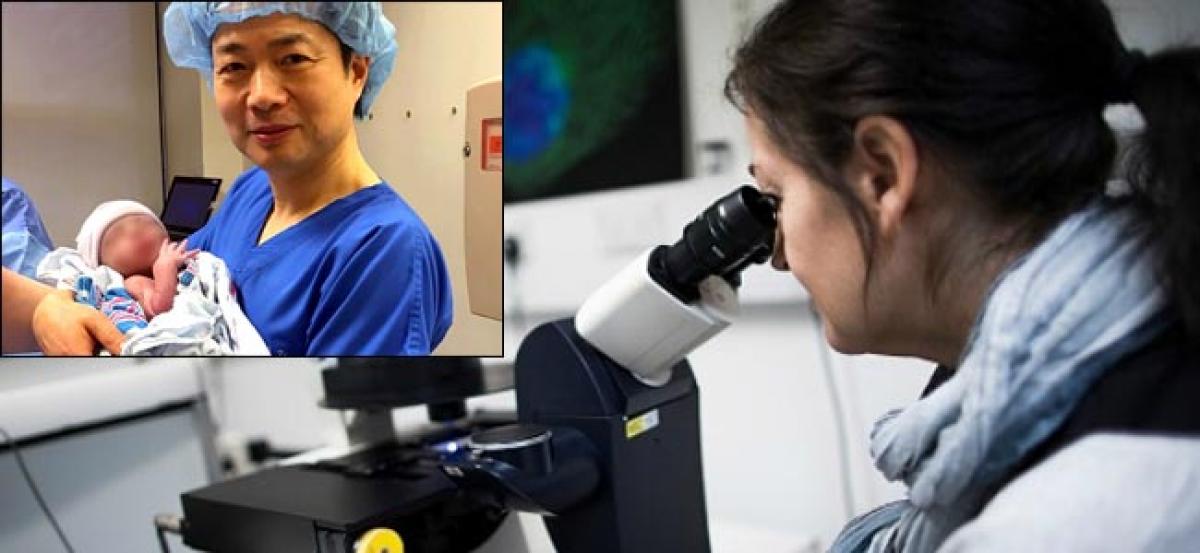Live
- Walls near Begumpet, RK Puram railway stations hit denizens hard
- Security forces destroy suspected IED found in J&K
- Gang behind cable theft in Metro busted
- AAP files plaint against BJP leader Chahal
- HC grants relief to actor Mohan Babu, stays police notices
- 'Grateful to all': Didi on INDIA bloc chief's role
- HMWSSB completes 50% of 90-day desilting special drive
- Lot to be done to get rid of manual scavenging: SC
- Cong-AAP 'alliance' will not make any difference
- Don’t rely too much on PAs, Gutha cautions lawmakers
Just In

The world\'s first three-parent baby has been born in Mexico with the help a controversial new fertility technique that incorporates DNA from three people, and is reported to be healthy at five months of age.
The world's first three-parent baby has been born in Mexico with the help a controversial new fertility technique that incorporates DNA from three people, and is reported to be healthy at five months of age.
The 'three-parent' technique allows parents with rare genetic mutations to have healthy babies.
he boy's mother carries genes for Leigh syndrome, a fatal disorder that affects the brain, muscles, and nerves of developing infants. Genes for the disease reside in DNA in the mitochondria, which provide energy for our cells.
The parents of the baby, a Jordanian couple, had been trying to start a family for almost 20 years.
Ten years after they married, the woman became pregnant, but it ended in the first of four miscarriages.
In 2005, the couple gave birth to a baby girl. Their daughter was born with Leigh syndrome and died aged six.
The couple's second child had the same disorder, and lived for 8 months, the 'New Scientist' reported.
The couple sought out the help of John Zhang and his team at the New Hope Fertility Centre in New York City.
Zhang used an approach called spindle nuclear transfer. He removed the nucleus from one of the mother's eggs and inserted it into a donor egg that had its own nucleus removed.
The resulting egg - with nuclear DNA from the mother and mitochondrial DNA from a donor - was then fertilised with the father's sperm.
Zhang's team used this approach to create five embryos, only one of which developed normally. This embryo was implanted in the mother and the child was born nine months later on April 6, this year.
When researchers tested the boy's mitochondria, they found that less than one percent carry the mutation.
This may be too low to cause any problems; generally, it is thought to take around 18 per cent of mitochondria to be affected before problems start, researchers said.
The team will describe the findings at the American Society for Reproductive Medicine's Scientific Congress in the US in October.

© 2024 Hyderabad Media House Limited/The Hans India. All rights reserved. Powered by hocalwire.com







